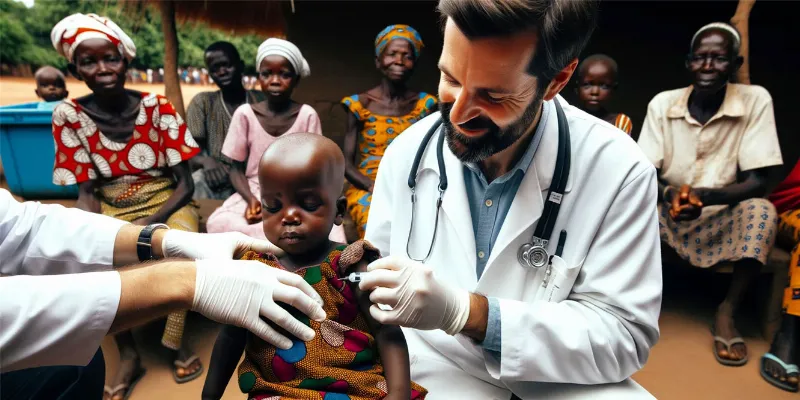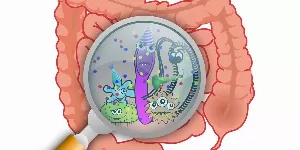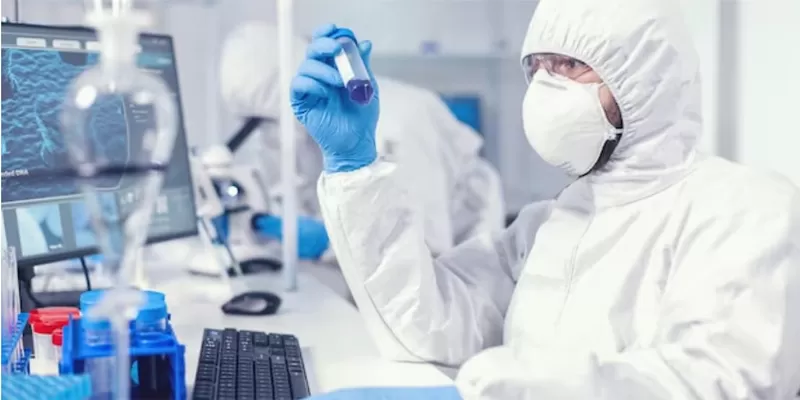WHO Endorses Second Malaria Vaccine: Matrix-M is Cheaper and Efficient

10 October 2023
In a landmark decision, the World Health Organization (WHO) has endorsed a new malaria vaccine, R21/Matrix-M, developed in collaboration with the University of Oxford. This pivotal decision paves the way for a more vigorous strategy to combat a disease that claims the lives of half a million individuals annually.
The R21/Matrix-M vaccine has emerged as a beacon of hope in the fight against malaria, distinguishing itself as the first ever to reach the WHO's ambitious target efficacy of 75%. This is particularly notable when compared to the RTS,S vaccine, which was the first to be approved by the WHO in 2021 but demonstrated an efficacy rate of only around 30%.
Additionally, the R21 vaccine boasts of being more cost-effective, with a pricing structure of $2 to $4 per dose, which is approximately half the cost of the RTS,S. Significantly, the Serum Institute of India, has already announced plans to produce in excess of 100 million doses per year, with an eventual target of scaling up production to an impressive 200 million doses annually.
The importance of this groundbreaking vaccine in the global health landscape is magnified when one considers the disproportionate impact of malaria on vulnerable populations, especially in Africa.
Dr. Tedros Adhanom Ghebreyesus, the esteemed Director-General of the WHO, encapsulated the optimism in the global health community, expressing, "As a malaria researcher, I often dreamt of a day when we would possess a robust and effective vaccine against malaria. Today, we can proudly say we have two."
However, global health experts underscore that, while promising, the vaccine should not be viewed as a silver bullet. Dr. Michael Charles, the Chief Executive Officer of the RBM Partnership to End Malaria, highlighted the ongoing challenges, stating that the vaccine should be seen as a significant tool, but not the sole solution. He emphasized the need for sustained funding, research, and strategies to ensure the vaccine's accessibility and to counter emerging challenges like insecticide and drug resistance, as well as the implications of climate change.
Adding to this sentiment, Dr. Matshidiso Moeti, the WHO's Regional Director for Africa, expressed optimism about the potential of the R21 vaccine to substantially bridge the gap between demand and supply of effective malaria interventions. She voiced hope that, with widespread adoption and rollout, the vaccine could play a pivotal role in safeguarding the lives of hundreds of thousands of young individuals across Africa from this life-threatening disease.
In conclusion, while the R21 vaccine's approval signifies a momentous leap towards a future free from the scourge of malaria, it also serves as a potent reminder of the continued global commitment, collaboration, and innovation required to truly eradicate this ancient adversary.
Key features of the R21 malaria vaccine:
The updated WHO malaria vaccine recommendation is informed by evidence from an ongoing R21 vaccine clinical trial and other studies, which showed:
- High efficacy when given just before the high transmission season
- Good efficacy when given in an age-based schedule
- High impact: The public health impact of the R21 vaccine is expected to be high in a wide range of malaria transmission settings, including low transmission settings.
- Cost effectiveness: At prices of US$ 2 – US$ 4 per dose, the cost-effectiveness of the R21 vaccine would be comparable with other recommended malaria interventions and other childhood vaccines.
- Safety: The R21 vaccine was shown to be safe in clinical trials.








Comments
No Comments Yet!